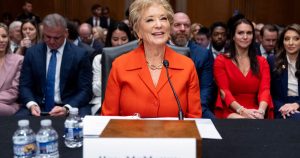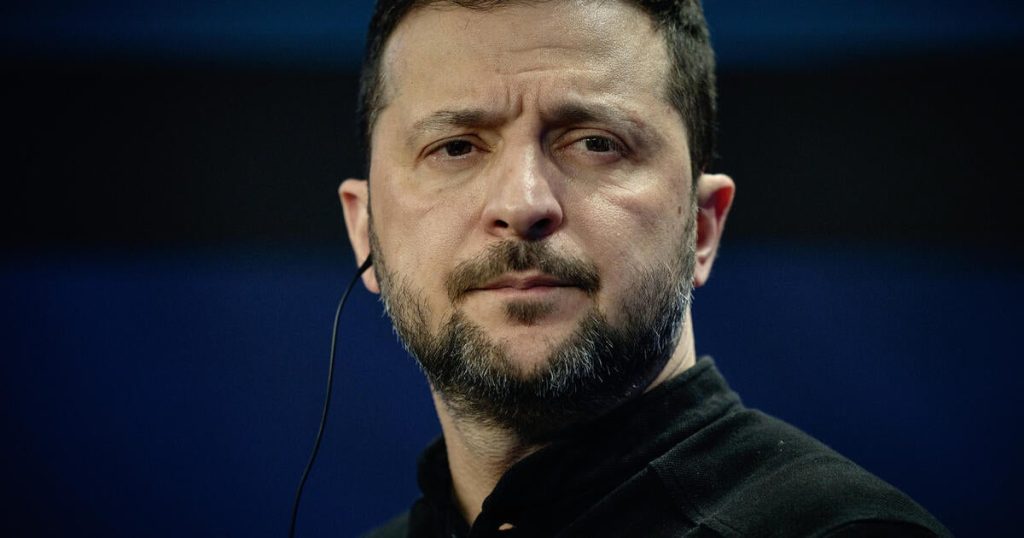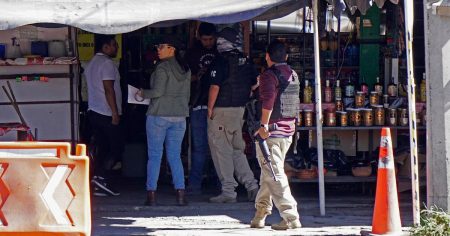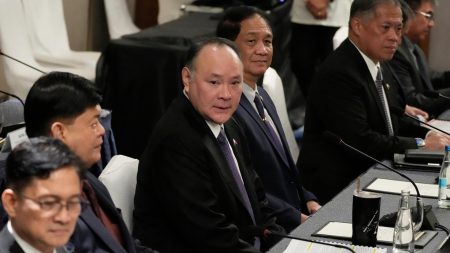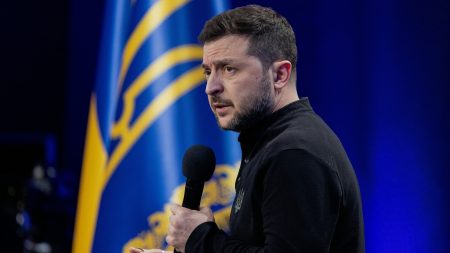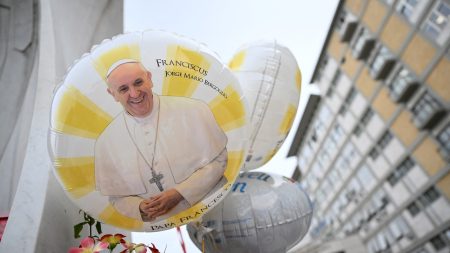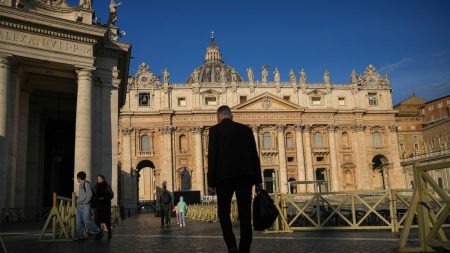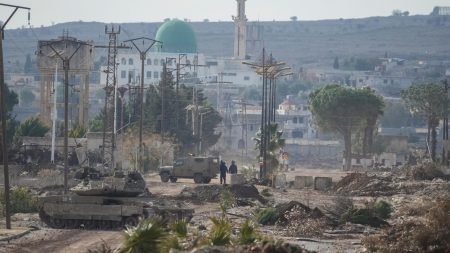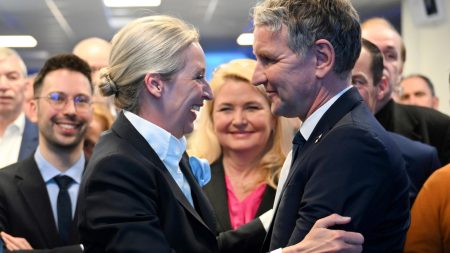A Show of Solidarity: European and Canadian Leaders Visit Kyiv on the Third Anniversary of Russia’s Invasion
On February 24, 2025, Kyiv, the capital of Ukraine, welcomed a dozen leaders from Europe and Canada in a powerful display of unity and continued support for the embattled nation. The visit coincided with the third anniversary of Russia’s invasion of Ukraine, a conflict that has reshaped global geopolitics and tested the resolve of international alliances. Among the prominent leaders who arrived in Kyiv were European Commission President Ursula von der Leyen, Canadian Prime Minister Justin Trudeau, European Council President Antonio Costa, and the prime ministers of several Northern European countries and Spain. The delegation was greeted at the train station by Ukrainian Foreign Minister Andrii Sybiha and Andrii Yermak, the head of the Office of the President of Ukraine.
The visit was not just a symbolic gesture but a strategic move to reaffirm Europe’s commitment to Ukraine’s sovereignty and territorial integrity. In a post on X, von der Leyen emphasized that Europe stands with Ukraine because "Ukraine is in Europe," and the fight for survival is not just Ukraine’s destiny but Europe’s as well. The leaders were scheduled to attend commemorative events marking the invasion’s anniversary and hold discussions with Ukrainian President Volodymyr Zelenskyy to explore ways to strengthen support for Ukraine amid a shifting international landscape.
Rising Tensions: The Impact of U.S. Policy Shifts Under President Trump
The timing of the visit was particularly significant, as it came against the backdrop of a rapidly changing international environment influenced by policy shifts in the United States under President Donald Trump. Trump, who has vowed to end the war quickly, has pursued an approach that has raised concerns among Ukrainian and European leaders. Many fear that his strategy may be too accommodating toward Russia and its President, Vladimir Putin, potentially leading to an unfavorable peace settlement for Ukraine.
These concerns were exacerbated by recent announcements from Russia’s foreign ministry, which revealed that preparations were underway for a face-to-face meeting between Trump and Putin. U.S. officials confirmed that diplomatic ties and economic cooperation with Russia were being reestablished. Furthermore, Russian Deputy Foreign Minister Sergei Ryabkov disclosed that bilateral talks between Moscow and Washington would continue at the end of the week, underscoring the intensity of the ongoing dialogue.
European leaders, fearing that Trump’s approach could sideline them in peace negotiations and result in a disadvantageous outcome for Ukraine, have scrambled to assert their influence. European Council President Antonio Costa announced an emergency summit of EU leaders in Brussels on March 6, with Ukraine at the top of the agenda. "We are living a defining moment for Ukraine and European security," Costa declared, highlighting the gravity of the situation.
Europe’s Strategic Response: Strengthening Support for Ukraine
In response to the shifting dynamics, Europe has been actively recalibrating its strategy to support Ukraine. The European Union has taken steps to reaffirm its commitment to Kyiv, with EU foreign ministers holding a meeting in Brussels to discuss the ongoing crisis. During the meeting, the ministers observed a moment of silence, symbolizing their solidarity with Ukraine.
Meanwhile, the United Kingdom announced plans to impose new sanctions on Russia, described as the largest package since the early days of the war. The measures aim to erode Russia’s military capabilities and reduce the revenue fueling its aggression in Ukraine. British Foreign Secretary David Lammy underscored the importance of these sanctions in weakening Russia’s "military machine." Additionally, British Prime Minister Keir Starmer and French President Emmanuel Macron were set to visit Washington, D.C., to persuade Trump not to abandon Ukraine in his pursuit of a peace deal.
The Escalation of Conflict: Russia’s Drone Attacks Intensify
As the international community grappled with diplomatic maneuvering, the conflict on the ground in Ukraine continued to escalate. On the eve of the third anniversary of the invasion, Russia launched a record 267 drones into Ukraine, targeting infrastructure and civilians. The attack destroyed critical infrastructure and claimed at least three lives, marking one of the most aggressive uses of drones since the start of the war. Zelenskyy described the assault as "the largest attack since Iranian drones began hitting Ukrainian cities and villages," emphasizing the growing threat posed by such weaponry.
Ukrainian air defenses managed to shoot down 138 drones, with an additional 119 lost en route to their targets. However, the sheer scale of the attack underscored the ongoing vulnerability of Ukrainian cities and the relentless nature of the conflict. The following night, Russia launched another wave of 113 drones, targeting 12 regions, including Kyiv, Odessa, and Dnipropetrovsk. While Ukrainian forces successfully downed many of the drones, the attacks highlighted the enduring toll of the war on civilians and infrastructure.
Diplomatic Efforts: Balancing Support and Negotiations
Amid the escalating violence, diplomatic efforts continued, though the path forward remains fraught with challenges. European leaders, aware of the need to maintain unity, have sought to balance their support for Ukraine with the necessity of engaging Russia in negotiations. The emergency EU summit called by Costa aims to coordinate a unified response to the crisis, ensuring that Europe’s voice is heard in any potential peace talks.
At the same time, the visits by Starmer and Macron to Washington reflect Europe’s efforts to influence Trump’s approach to the conflict. Both leaders were expected to urge the U.S. president to maintain his support for Ukraine, despite his push for a rapid resolution to the war. Their visits underscored the importance of transatlantic cooperation in addressing the crisis, even as differences in strategy threatened to create divisions.
The Road Ahead: Uncertainty and Resolve
As the third anniversary of Russia’s invasion passed, Ukraine finds itself at a precarious juncture. The unwavering support of European and Canadian leaders offers a glimmer of hope, but the rapidly shifting geopolitical landscape poses significant challenges. The U.S. policy shift under Trump, coupled with Russia’s relentless aggression, has created an environment of uncertainty that Ukraine must navigate with caution.
Despite these challenges, Ukraine’s global allies remain committed to its cause. The visit of European and Canadian leaders to Kyiv serves as a powerful reminder of the international community’s resolve to stand with Ukraine in its fight for sovereignty. As the conflict enters its fourth year, the world watches closely, knowing that the outcome of this war will shape not only Ukraine’s future but also the destiny of European security and global stability.
In the face of ongoing diplomacy, military escalation, and shifting alliances, Ukraine’s resilience and determination continue to inspire admiration worldwide. The next phase of the conflict will require careful diplomacy, strategic coordination, and unwavering resolve from Ukraine and its allies to ensure that the principles of freedom, democracy, and territorial integrity prevail.

